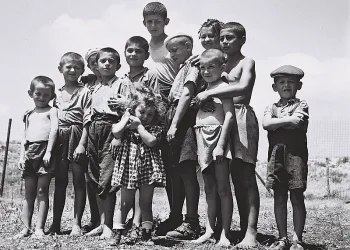Few meetings carry as much immediate weight as today’s Foreign Affairs Council (Development), chaired for the first time by EU High Representative Kaja Kallas.
With the US withdrawing a staggering $60 billion in USAID contracts globally, the EU faces the urgent task of redefining its role in the global aid landscape.
Prioritising Amid Pressure
The Council’s agenda reflects a recalibrated EU development strategy. From democracy and media freedom support to human rights and democracy, ministers are narrowing focus on where Europe can lead.
Kallas made clear that while the EU can’t fully fill the USAID vacuum, it is concentrating efforts on critical areas.
“We are focusing on the priorities that we have… our neighbourhood, democracy, media freedom, and human rights,” she said.
Reinforcing the EU-Africa Partnership
Momentum from a recent EU-AU ministerial is being carried into the council’s discussions. The meeting saw participation from 39 African and 15 European ministers, a clear signal of mutual interest in deepening ties.
-
A major outcome could be fast-tracking deliverables ahead of the upcoming EU-Africa Summit.
-
Ministers explored joint projects, migration frameworks, and sustainable investment packages.
| EU-AU Ministerial Highlights | Details |
|---|---|
| Participating African Ministers | 39 |
| Participating European Ministers | 15 |
| Focus Areas | Economic partnerships, mobility, democracy |
| Goal for Summit | Concrete deliverables, joint initiatives |
Strengthening EU Africa relations is no longer a long-term ambition—it’s a short-term imperative. Africa’s G20 seat and increasing global voice have made the continent central to the EU’s development funding strategy.
Navigating Financial Constraints
Limited funds are pushing the EU to rethink its approach under the Multiannual Financial Framework (MFF). This discussion dominated the midsection of the Council’s agenda, as ministers debated how to make EU development aid more strategic and impactful.
Main considerations included:
-
Redirecting funds from less impactful programs.
-
Leveraging private sector partnerships.
-
Promoting flexibility to respond to emerging crises.
With the MFF under pressure, expect an EU push for modernisation—potentially including rapid-deployment funds and innovative financing tools.
Ukraine: From ‘Other Business’ to Central Concern
Though listed under “any other business,” the Ukraine conflict response quickly became a focal point. Following Russia’s most destructive combined missile and drone strike on Kyiv just days prior, ministers united in condemning the attacks.
“These attacks on Kyiv are totally appalling… It is up to us to put pressure on Russia,” Kallas stated.
Here Kaja Kallas speech underscored the need for Europe to take the diplomatic lead as global power dynamics shift. The EU’s actions may include increased humanitarian aid, enhanced military support, or coordinated sanctions with allies.
Strategic Implications Going Forward
The Council represents more than routine diplomacy. It reflects the EU’s evolving identity as a global actor post-USAID, amid crises, and during pivotal geopolitical realignments. Ministers are being asked to do more with less—fast.
Emerging Takeaways:
-
The Foreign Affairs Council is likely to elevate Africa in its strategic tier.
-
EU development aid will be more targeted, transparent, and innovation-driven.
-
Coordinated support for Ukraine is now a fixture in EU foreign policy.
-
EU leaders acknowledge the need to counterbalance China’s rising influence in aid.
Looking Ahead
While today’s meeting doesn’t produce finalised policies, it sets the tone for EU diplomacy in 2025. As global instability increases, so too does the EU’s need for unified, agile responses. Whether through regional partnerships or revised development funding strategy, the EU is clearly stepping into a more assertive role.
And for Kaja Kallas, this was more than a first-time chairmanship—it was a declaration that the EU intends not only to respond to global challenges but to shape their solutions.
Summary of Actions:
-
EU development aid reoriented post-USAID withdrawal
-
Commitment to media freedom support and human rights
-
Stronger EU Africa relations ahead of the 7th EU-AU Summit
-
Budget discussions for a leaner Multiannual Financial Framework
-
Swift Ukraine conflict response discussed despite not being on the main agenda
A Defining Moment for EU Leadership
The Foreign Affairs Council (Development) meeting, under Kaja Kallas’s leadership, marked a pivotal shift in the EU’s global development approach. Faced with an urgent need to adapt following the USAID withdrawal and mounting crises like the war in Ukraine, the EU is recalibrating its priorities with purpose and precision.
By reinforcing its strategic relationship with Africa, reassessing financial strategies under the Multiannual Financial Framework, and standing firm in its support for Ukraine, the EU is signaling a more confident, values-driven role on the world stage.
As Europe steps into a new chapter of international development, the decisions made today will ripple outward—shaping partnerships, funding strategies, and diplomatic alignments for years to come.
Sources: European Union, ERA, African Union, Global Policy Journal and ISW.
Prepared by Ivan Alexander Golden, Founder of THX News™, an independent news organization delivering timely insights from global official sources. Combines AI-analyzed research with human-edited accuracy and context.







